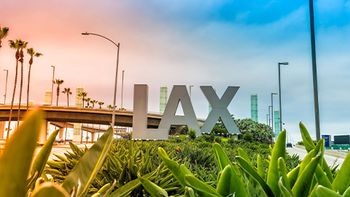
- Pharmaceutical Commerce - May/June 2013
Should personalized medicine imply compromised patient safety?
Continuing problems with compounding pharmacies muddle biopharma’s future direction
To a surprising extent, pharma manufacturers have been on the sidelines as the compounding-pharmacy crisis, which began several months ago at a now-shuttered pharmacy, New England Compounding Center (NECC), plays out. In early April, the Centers for Disease Control, which has been monitoring the outbreak and guiding healthcare providers’ response, documented 53 deaths and 733 injuries.
The Pew Charitable Trusts, which funds an ongoing medical safety policy effort, counted 75 deaths and over 1,000 injuries dating back to 2001 from compounded products. Pew sponsored a “stakeholder summit” earlier this year, and published a proceedings in April, just as new Congressional hearings were about to commence. Pharma trade associations, including PhRMA, BIO and GPhA, were neither participants nor observers at the summit; nor have there been public statements from these organizations about the ongoing outbreak.
As has been explained repeatedly by FDA and others since the crisis surfaced, some compounding pharmacies operate in a nether world between being a “manufacturer” (obliged to conduct clinical trials and seek FDA approval for newly formulated products) and a traditional “pharmacy” (where compounding has been a practice—for individual dosages for specific patients—since the pre-industrial era). FDA has some regulatory oversight, but has also been hampered by court rulings brought by compounding pharmacy organizations that reject that oversight. What has evolved over the past 20 years or so is a business—estimated to be worth as much as $9 billion annually—of producing compounded products in bulk, and to have them on hospital pharmacy shelves or in clinics, ready for use by patients. Most recently, when FDA initiated a “priority inspection” of compounding pharmacies between February and April, 28 of 29 facilities received Form 483 warning letters (and the only one that did not was found not to be producing compounded sterile products). During this campaign—and despite the publicity surrounding the NECC outbreak—four of the facilities objected to allowing FDA inspectors onsite, and two required FDA to obtain administrative warrants, and to show up with US marshals in tow.
There are several interrelated issues to be worked out. USP Chapter <797>, the guiding document for safe compounding, is in force only in some states. FDA is seeking new legislative authority, while a trade group representing compounding pharmacies wants to keep regulatory oversight at the state level, while simultaneously bemoaning the lack of necessary resources at state boards of pharmacy. (In a recent Bloomberg News article,* a lawyer representing compounding pharmacies is quoted for the following howler: “If a pharmacy waits to do everything in compliance then patients won’t get treatment.” (Imagine a pharma manufacturer making that defense!)
Here’s where biopharma’s interests come into play: while many compounded products are generics, some are not: one recent recall involved Roche’s Avastin (bevacizumab) being formulated for use in macular degeneration, but causing eye infections and blindness (Roche makes a similar product, Lucentis, expressly for macular degeneration, but it costs more. So patients are knowingly or unknowingly trading cost for safety.) Hospitals seek (or produce) compounded products, in some cases, simply because manufacturers do not offer them in forms suitable for patient use (is this an “unmet medical need?”) Finally, there is an overlap between compounded products and
In a follow-up to the Pew meeting, Cynthia Reilly, a director at American Soc. of Health-System Pharmacists, stated, “In an era of personalized medicine based on genomic information or patient weight, we’re moving away from standardized drugs, and that will drive the future need for compounding.” Such drugs have already started to appear. Will the biopharma industry exert control over how these drugs and related therapies are dispensed, or will they cede that to pharmacists and clinicians? Will the general public make these fine distinctions between manufacturer-sourced products, and those that have been compounded, or tar everyone with the same brush?
*www.bloomberg.com/news/2013-04-05/drug-compounders-fail-to-learn-lesson-as-fda-boosts-raids.html
Articles in this issue
over 12 years ago
Better interoperability is the goal of an EHR vendor consortiumover 12 years ago
HDMA's 2013 Distribution Management Award goes to GHXover 12 years ago
MeadWestvaco wins Healthcare Compliance Package of the Year awardover 12 years ago
Drug shortages continue to challenge health systemsover 12 years ago
DKSH pushes 'market expansion services' for life sciences in Asiaover 12 years ago
European Union, China finalize good-distribution practices (GDPs)over 12 years ago
Accenture characterizes the "New Normal" in pharma sales/marketingover 12 years ago
Animal-health pharmaceuticals are jumping the 'ethical channel'Newsletter
Stay ahead in the life sciences industry with Pharmaceutical Commerce, the latest news, trends, and strategies in drug distribution, commercialization, and market access.




